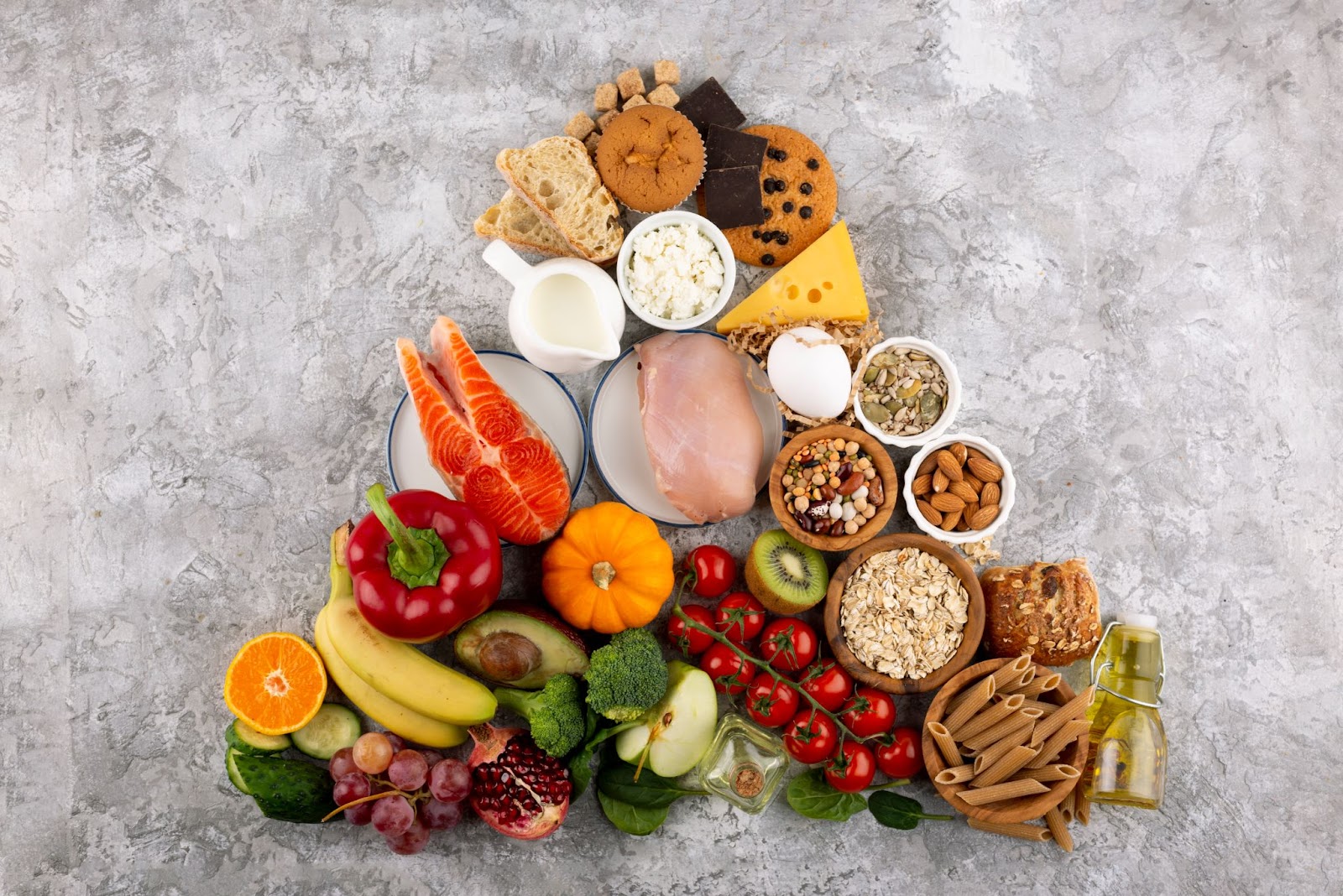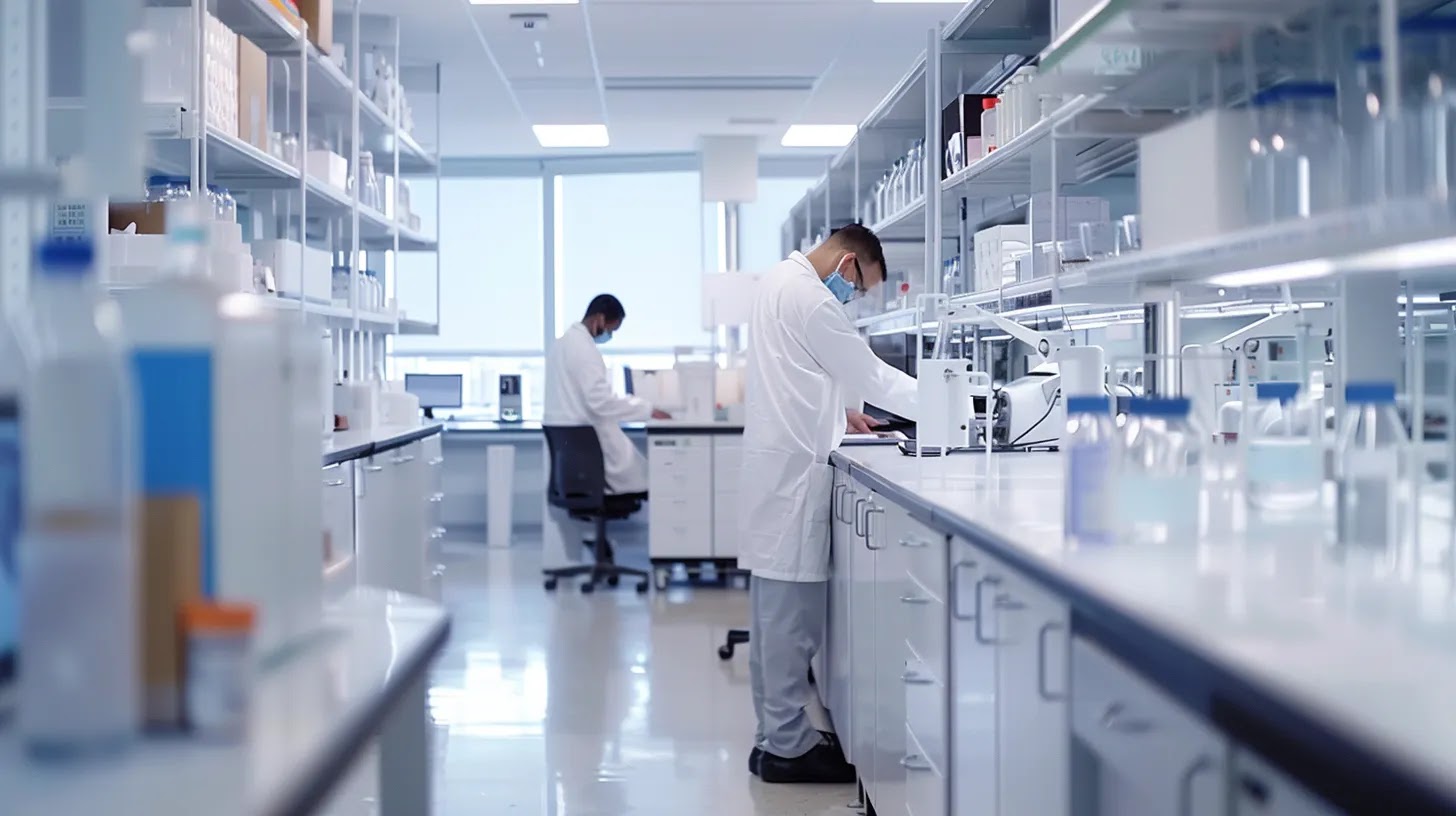Maintaining a healthy gut can be challenging, especially with varying dietary choices. Probiotics and proteins play significant roles in supporting digestive health. This article will define probiotics, explore their importance, examine how proteins impact gut wellness, and discuss practical ways to incorporate these essential nutrients into one’s diet. Readers will gain actionable insights to enhance gut health, addressing common digestive issues and improving overall wellbeing. Understanding the relationship between probiotics and proteins offers valuable guidance for anyone looking to optimize their digestive health effectively.
Key Takeaways
- Probiotics support gut health by promoting the balance of beneficial bacteria
- Dietary proteins are essential for cellular repair and optimizing gut function
- Fermented foods are effective sources of probiotics that enhance nutrient absorption
- Lifestyle choices, including hydration, significantly impact gut microbiota and overall health
- Tracking dietary intake helps identify irritants and improve digestive comfort
Defining Probiotics and Their Importance for Gut Health

Probiotics play a critical role in gut health by supporting the balance of beneficial bacteria. Various species, including *Streptococcus thermophilus*, can be sourced from fermented foods like yogurt and maize. They help maintain gut flora, which is essential for preventing disease. This section addresses the types of probiotics, their associated health benefits, and common myths that may mislead individuals regarding their usage.
Understanding the Concept of Probiotics
Probiotics are live microorganisms, primarily bacteria, that contribute positively to gut health by enhancing the balance of microbiota. Different strains, such as *Streptomyces*, play specific roles in metabolizing carbohydrates and producing essential metabolites that support overall digestive function. Experiments have demonstrated that these beneficial bacteria can withstand varying conditions, such as heat, further highlighting their resilience and effectiveness in promoting gut health.
Types of Probiotics and Their Sources
Probiotics can be categorized into various types based on their specific strains and actions within the gut microbiota. Common sources include fermented foods such as yogurt, kefir, sauerkraut, and kimchi, which thrive in diverse temperatures, including room temperature, making them accessible for daily consumption. Incorporating these probiotics into a balanced diet may not only support digestive health but also play a role in weight management by aiding metabolism and improving gut flora balance.
The Role of Probiotics in Maintaining Gut Flora
Probiotics serve a vital function in preserving gut flora by facilitating the growth of beneficial microorganisms essential for digestive health. For instance, strains such as *Pediococcus acidilactici* thrive in fermented foods, enriching the gut microbiome and enhancing nutrient absorption, including nitrogen from proteins. Scientific research, including studies published in the *Proceedings of the National Academy of Sciences of the United States of America*, highlights that eating foods rich in probiotics can significantly support the balance of gut bacteria, which is instrumental in preventing digestive disorders and promoting overall well-being.
Health Benefits Associated With Probiotics
The health benefits associated with probiotics, such as *lactiplantibacillus plantarum*, are well-documented and support overall digestive health. These beneficial microorganisms contribute to the maintenance of gut flora by enhancing the cell wall integrity in intestinal cells, promoting effective secretion of digestive enzymes. Studies indicate that regular intake of probiotics protein supplement can improve feces consistency and may even lower mortality rates associated with gastrointestinal disorders, showcasing their essential role in gut health.
| Probiotic Strain | Health Benefits |
|---|---|
| *Lactiplantibacillus plantarum* | Improves gut flora balance and enhances secretion of digestive enzymes. |
| *Bifidobacterium bifidum* | Supports immunity and reduces the risk of infections. |
| *Lactobacillus rhamnosus* | Helps mitigate diarrhea and improve fecal consistency. |
Common Myths About Probiotics
Common myths surrounding probiotics can mislead consumers about their benefits and usage. For example, some individuals mistakenly believe that only specific strains, like *Bacillus subtilis*, are effective, ignoring the diverse range of beneficial bacteria and ingredients available. Additionally, misconceptions about the necessity of peptides in dietary choices can cause people to overlook how foods like almonds contribute positively to gut health by providing necessary nutrients for probiotic activity and supporting their natural habitat in the digestive system.
Probiotics play a vital role in maintaining a healthy gut, but they are only part of the picture. The next step is to understand proteins and how they shape digestive health.
Exploring Proteins and Their Impact on Digestive Health

Proteins play a significant role in human health, serving as fundamental building blocks for cells and tissues. Different types of dietary proteins, sourced from both animal and plant origins, support gut function and facilitate cellular repair. Disturbances in protein intake can lead to digestive issues, impacting interleukin 10 production and overall gut ecosystem. Understanding the relationship between proteins and probiotics further highlights their combined effects on gut health.
The Significance of Proteins in Human Health
Proteins are essential macromolecules that serve as fundamental components for cellular functions and structures in the human body. They are composed of amino acids, which play a pivotal role in synthesizing enzymes and hormones that are crucial for metabolic processes, including the functioning of the mitochondrion. Research published in Elsevier demonstrates that adequate protein intake is vital for the expression of specific genes that regulate muscle mass and overall health, thereby underpinning the significance of a balanced diet that includes quality protein sources to support digestive health and gut microbiome balance.
Types of Dietary Proteins and Their Sources
Dietary proteins can be classified into two main types: animal-based and plant-based, each offering essential amino acids crucial for gut health. Animal sources, such as meat, poultry, fish, and dairy, provide complete proteins that are readily utilized by the body, while plant sources, including legumes, nuts, and grains, offer a natural environment for various probiotics to thrive. Understanding the sources and types of dietary proteins is vital, as it can minimize potential conflicts of interest in nutrition science, especially in gastroenterology, where the interplay between protein intake and gut microbiota significantly affects overall health outcomes.
How Proteins Support Gut Function and Repair
Proteins play a key role in supporting gut function and repair by facilitating cell adhesion and the preservation of intestinal integrity. Amino acids from dietary proteins, particularly those derived from legumes, are essential for the synthesis of various compounds that influence the human microbiome positively. Additionally, the presence of beneficial strains such as *Lactobacillus acidophilus* can enhance lipid metabolism and promote nutrient absorption, ultimately contributing to a healthier digestive system.
Potential Protein-Related Digestive Issues
Potential protein-related digestive issues can arise from various factors, including the presence of protease inhibitors in certain legumes that may interfere with protein digestion, leading to discomfort. This can disrupt the gut’s ability to absorb nutrients, including crucial elements such as calcium, essential for maintaining a robust immune system. Furthermore, while many proteins yield antimicrobial peptides that promote gut health, excessive protein intake from sources high in fats can alter gut flora, impacting overall digestive function.
The Interplay Between Proteins and Probiotics in Gut Health
The interplay between proteins and probiotics significantly influences gut health, especially in the small intestine, where the absorption of nutrients occurs. Different protein sources, such as whey and various seed-based options, contribute to a balanced diet that supports the growth of beneficial bacteria. This synergy can be particularly beneficial for individuals with conditions like ulcerative colitis, as certain proteins may aid in repairing gut lining while probiotics work to maintain overall microbiome health.
| Protein Source | Probiotic Interaction | Health Benefit |
|---|---|---|
| Whey | Enhances growth of beneficial bacteria | Supports gut health and immune function |
| Seed-based proteins | Provides nutrients for probiotics | Promotes balance in gut microbiota |
| Animal proteins | Interacts with gut bacteria genomes | Aids in nutrient absorption |
Proteins shape our gut health in profound ways. Next, the role of probiotics alongside proteins offers new insights into achieving optimal gut wellness.
The Relationship Between Probiotics and Proteins in Gut Wellness

Probiotics and proteins interact to enhance gut wellness by promoting homeostasis within the digestive system. Protein intake influences probiotic efficacy, with strains like *lacticaseibacillus casei* benefiting from specific dietary combinations. This section will explore the synergistic effects on digestive health, provide real-life examples of beneficial food pairings, and offer recommendations for optimal nutrition to support beneficial neutrophil activity in the stomach.
How Probiotics and Proteins Work Together
Probiotics and proteins collaborate effectively to enhance gut wellness within the gastrointestinal tract. Nutrients derived from dietary proteins can facilitate the metabolic processes of probiotics, while probiotics, in turn, can produce antimicrobial compounds that help in regulating harmful bacteria. This interaction highlights the importance of incorporating both elements into daily nutrition, as their combined effects can promote a balanced microbiome and support overall digestive health, ultimately leading to improved gut function and resilience against disorders.
The Effects of Protein Intake on Probiotic Efficacy
The relationship between protein intake and probiotic efficacy plays a significant role in maintaining gut health. Specific proteins can influence the survival and activity of probiotics such as *lacticaseibacillus paracasei*, enhancing their effectiveness in promoting a balanced microbiome. Furthermore, incorporating proteins that serve as antioxidants and healthy lipids into the diet may provide additional support for probiotic function, potentially offering benefits for individuals experiencing conditions like pouchitis:
- Protein sources can enhance the functionality of probiotics.
- Choosing proteins high in antioxidants may improve gut wellness.
- Interaction with probiotics can lead to improved digestive health.
- Effective dietary combinations play a role in managing conditions like pouchitis.
Synergistic Benefits for Digestive Health
The synergistic relationship between probiotics and proteins provides significant benefits for digestive health. Medical research in food microbiology emphasizes that protein sources can enhance the growth and activity of beneficial probiotics, which in turn contribute to the production of essential digestive enzymes. For instance, incorporating fermented foods rich in both proteins and probiotics, such as yogurt made with high-quality flour, can improve digestive efficiency and overall gut wellness, addressing common digestive issues faced by many individuals.
Real-Life Examples of Dietary Combinations
Incorporating specific dietary combinations can significantly enhance the benefits of both probiotics and proteins for gut health. For instance, pairing yogurt, which is rich in probiotics like *Lactobacillus acidophilus*, with almonds provides essential nutrients that fuel probiotic activity while also addressing issues such as lactose intolerance. Similarly, a mixture of fermented soy products, often used in agriculture for their health benefits, and lean meats can create a powerful meal that supports gut flora and promotes digestive efficiency. Understanding how these combinations work synergistically underscores the importance of nutrition in maintaining gut wellness:
- Yogurt with almonds boosts probiotic activity and addresses lactose intolerance.
- Fermented soy products combined with lean meats support gut flora.
- Utilizing metagenomics can help identify beneficial food pairings for digestive health.
- ELISA techniques may be useful in researching the effects of these combinations on gut health.
Recommendations for Combining Probiotics and Protein
The combination of probiotics and proteins can significantly enhance gut health, particularly by incorporating specific amino acids such as leucine, which supports muscle repair and promotes overall digestive efficiency. Statistics indicate that fermented foods containing bacillus strains, when integrated with high-quality protein sources, facilitate a balanced microbiome, improving nutrient absorption. Food processing techniques can also play a critical role in ensuring that these beneficial combinations retain their potency, making sampling these interactions in dietary practices beneficial for individuals seeking to optimize their digestive wellness.
Gut health is shaped by more than just probiotics and proteins. There are other elements at play that affect well-being, and understanding them can lead to a fuller picture of digestive health.
Factors Influencing Gut Health Beyond Probiotics and Proteins

The role of diet in maintaining gut health extends beyond probiotics and proteins, encompassing a range of factors that impact the microbiota. Lifestyle choices, such as physical activity and stress levels, significantly influence digestion and gut function. Adequate hydration is crucial for optimal gastrointestinal performance, while understanding when to seek professional advice is essential for addressing persistent gut issues. This section will explore each of these topics, providing insights into how they affect overall gut health and the balance of beneficial bacteria like lactobacillus.
The Role of Diet in Maintaining Gut Health
The role of diet in maintaining gut health is vital, as it directly affects the balance of various strains of beneficial bacteria. Consuming environmentally friendly, whole-food options can create a favorable environment for probiotics to thrive, enhancing their mechanism of action. Additionally, dietary sources rich in amino acids serve as stimulants for the growth of these beneficial organisms, thereby supporting optimal digestive function and overall gut wellness.
Lifestyle Factors That Affect Gut Microbiota
Lifestyle factors significantly influence gut microbiota, shaping the interactions between beneficial microorganisms and overall digestive health. Evidence indicates that regular physical activity can promote the growth of specific strains, such as *Limosilactobacillus fermentum*, which play a role in nutrient absorption and intestinal health. Additionally, managing stress levels and ensuring adequate intake of vitamins can enhance immune responses, notably through the modulation of molecules like interleukin 8, thus supporting a healthier gut environment.
The Impact of Stress on Digestion
Stress significantly impacts digestion by altering the function of the intestinal epithelium, which serves as a barrier to harmful substances while allowing nutrients to pass through. When an individual experiences high levels of stress, it may disrupt the balance of gut microbiota, decreasing biodiversity and impairing the effectiveness of probiotics and protein supplements in promoting digestive health. Incorporating nutrient-rich grains and healthy nuts into one’s diet can help mitigate these effects by providing essential amino acids and fiber, supporting overall gut wellness amidst stressful situations.
Importance of Hydration for Gut Function
Hydration plays a crucial role in maintaining gut function, as it directly impacts the bioavailability of crucial nutrients and the efficiency of enzymes needed for digestion. For example, adequate water intake enhances the efficacy of probiotics like *lacticaseibacillus rhamnosus*, helping them to thrive in the digestive tract. Insufficient hydration can lead to increased toxicity and discomfort, hindering the body’s ability to absorb essential nutrients and maintain a balanced gut environment.
When to Seek Professional Advice for Gut Issues
Recognizing when to seek professional advice for gut issues is essential for maintaining overall health and well-being. Individuals experiencing persistent digestive discomfort, significant weight loss, or unexpected changes in bowel habits should consult a healthcare provider to ensure proper diagnosis and treatment. It’s important to address symptoms indicating a disruption in the symbiosis between the gut microbiome and its host, particularly if linked to issues with fermentation or food safety, which can exacerbate gut conditions.
- Persistent digestive discomfort
- Significant weight loss
- Unexpected changes in bowel habits
- Signs of disrupted gut function
Understanding what shapes gut health is useful. Now, let’s turn to how to bring more probiotics and proteins into everyday meals.
Practical Tips for Incorporating Probiotics and Proteins Into Your Diet

Incorporating probiotics and proteins into a diet can significantly enhance gut health. Identifying the best food sources of probiotics is crucial, as is selecting quality protein options that provide essential amino acids such as methionine. Simple recipes that combine these elements can be beneficial, while paying attention to timing and portion sizes supports digestion. Monitoring dietary choices ensures adjustments can be made to address any digestive issues effectively.
Best Food Sources of Probiotics
Incorporating probiotics into the diet can be achieved through various food sources known for their beneficial microorganisms. Fermented foods such as yogurt, kefir, sauerkraut, and kimchi are excellent options, as they contain strains that help reduce inflammation and support gut health. Laboratory studies, including those found in leading journals with an ISSN, often highlight how these foods contribute to the balance of gut microbiota, especially in relation to lipopolysaccharide levels and digestive efficiency:
| Food Source | Probiotic Strains | Health Benefits |
|---|---|---|
| Yogurt | *Lactobacillus bulgaricus*, *Streptococcus thermophilus* | Supports digestion and reduces inflammation. |
| Kefir | *Lactobacillus kefiranofaciens* | Enhances gut flora and boosts immunity. |
| Sauerkraut | *Leuconostoc mesenteroides* | Promotes nutrient absorption and lowers cholesterol. |
| Kimchi | *Lactobacillus kimchii* | Improves gut health and supports the immune system. |
How to Select Quality Protein Sources
Selecting quality protein sources is essential for supporting gut health and optimizing physiological function. Individuals should prioritize proteins that are rich in essential amino acids, as these nutrients play a role in regulating cytokine production and supporting cellular repair processes. For instance, opting for grass-fed meats, organic poultry, and plant-based proteins such as lentils and quinoa can enhance nutrient absorption while reducing stress on the digestive system:
| Protein Source | Quality Indicators | Health Benefits |
|---|---|---|
| Grass-fed Meat | Higher omega-3 fatty acids | Supports inflammation regulation |
| Organic Poultry | Free of antibiotics and hormones | Promotes overall health and well-being |
| Lentils | High in fiber and protein | Enhances digestive health |
| Quinoa | Complete protein source | Provides essential amino acids |
Simple Recipes Featuring Probiotics and Proteins
Incorporating simple recipes into one’s diet can effectively combine probiotics and proteins, thereby fostering a healthy microbiome. A nutritious breakfast option includes a smoothie made with yogurt, spinach, and a scoop of protein powder, which can aid gene expression related to immune functions and promote the activity of T helper cells. For lunch, a salad topped with fermented vegetables, such as kimchi, and grilled chicken can enhance nutrient absorption while supporting microbiome health, particularly useful for individuals recovering from antibiotic treatments:
| Meal | Main Ingredients | Health Benefits |
|---|---|---|
| Breakfast Smoothie | Yogurt, spinach, protein powder | Aids immune function and promotes healthy gene expression. |
| Kimchi Salad | Fermented vegetables, grilled chicken | Enhances nutrient absorption and supports overall microbiome health. |
Timing and Portions for Optimal Gut Health
Timing and portion control play critical roles in maximizing the benefits of probiotics and proteins for gut health. Consuming meals that contain a balance of protein and probiotics at regular intervals throughout the day can significantly enhance the composition of gut microbiota, promoting a more robust digestive environment. Research in food chemistry and molecular biology illustrates that optimal timing can improve nutrient absorption and antibody production, leading to better immune responses and overall gut wellness.
Monitoring and Adjusting Diet for Digestive Issues
Monitoring and adjusting diet for digestive issues requires attention to the types of foods consumed and their potential effects on gut health. For individuals experiencing discomfort, tracking dairy and sugar intake can shed light on specific intolerances or sensitivities, particularly through examining the response of pattern recognition receptors in the gut. Implementing dietary adjustments based on this information, such as reducing processed sugars that can lead to inflammation through phosphorylation pathways, may significantly enhance digestive comfort and overall well-being.
- Track daily food intake to identify potential irritants.
- Adjust dairy and sugar consumption based on observed reactions.
- Utilize knowledge of pattern recognition receptors to guide dietary choices.
The journey into understanding how probiotics and proteins affect everyday health leads to new insights. Recent studies reveal unexpected connections between these nutrients and gut well-being that are worth exploring.
Current Research Trends in Probiotics, Proteins, and Gut Health

Recent studies highlight the significance of lactic acid bacteria in gut health, revealing new insights into their beneficial effects. Emerging findings also suggest the role of protein in digestion, examining how factors such as fat content and sodium influence microbial balance. Future research aims to refine dietary guidelines by exploring the implications of these discoveries, including the benefits of incorporating foods like dark chocolate into everyday diets, while addressing the nuances of placebo effects on gut function.
Overview of Recent Studies on Probiotics
Recent studies on probiotics have highlighted the significant roles of various microorganisms, particularly *Streptococcus*, in enhancing gut health. Research published in *PLoS* journals has demonstrated how these beneficial bacteria contribute to maintaining microbial balance, leading to improved digestion and overall wellness. By reinforcing the gut’s ecosystem, these findings emphasize the importance of incorporating specific probiotic strains into everyday diets, addressing common digestive issues while promoting better health outcomes.
Emerging Findings on Protein’s Role in Digestion
Emerging research highlights the pivotal role of protein in digestion, particularly regarding its influence on microbial balance within the gut. Specific proteins have been shown to interact with gastrointestinal organs, modulating metabolic pathways that affect beneficial bacteria like *Clostridium*. By leveraging insights from microbiology and biotechnology, scientists are beginning to understand how these interactions can enhance overall gut health and support the growth of probiotics, ultimately leading to more effective dietary recommendations for digestive wellness.
Future Directions for Gut Health Research
Future directions for gut health research are expected to focus on the interplay between dietary components like proteins from bean sources and their effects on interleukin production and gut microbiota balance. Studies in food science may investigate how specific acids derived from food fermentation impact the effectiveness of probiotics in promoting digestive wellness. As understanding of these relationships deepens, researchers aim to develop evidence-based dietary guidelines that leverage these findings, providing actionable insights for enhancing gut health.
- Interplay between proteins and probiotics
- Impact of bean sources on interleukin production
- Role of acids in food fermentation
- Future development of evidence-based dietary guidelines
Implications of New Research for Everyday Diets
New research indicates that the relationship between probiotics, proteins, and gut health can significantly influence metabolism and overall well-being. Insights from recent studies suggest that incorporating dietary supplements containing beneficial microorganisms may mitigate the risks associated with allergies and enhance the function of the intestinal epithelium. This evolving understanding empowers consumers to make informed dietary choices, enabling them to optimize their nutrition and support gut health through targeted food pairings and effective supplementation.
Expert Opinions on the Evolving Understanding of Gut Health
Experts emphasize the critical connection between probiotics, proteins, and gut health, particularly highlighting the role of nutrient-rich options like pea protein and coconut. Research indicates that malnutrition can severely affect gut flora, making it essential to enhance diets with high-quality proteins and probiotics to support overall digestive function. By incorporating specific minerals and foods, individuals can optimize their gut ecosystem, paving the way for improved health outcomes and maintaining a balanced microbiome.
Conclusion
Probiotics and proteins play a fundamental role in promoting gut health by balancing beneficial bacteria and supporting digestive functions. Incorporating diverse food sources rich in these essential components, such as fermented foods and quality proteins, fosters a healthy microbiome and enhances overall well-being. Awareness of the interplay between probiotics and proteins enables individuals to make informed dietary choices that can significantly improve digestive health. Prioritizing these elements in nutrition not only mitigates gastrointestinal issues but also promotes resilience against various digestive disorders.


